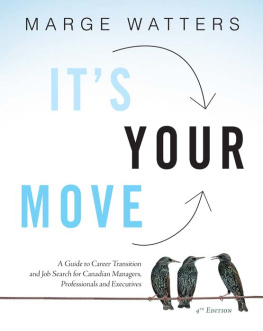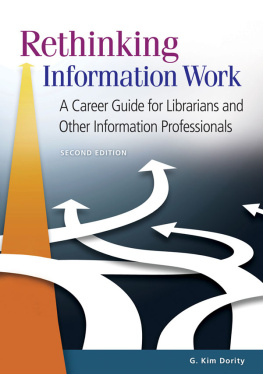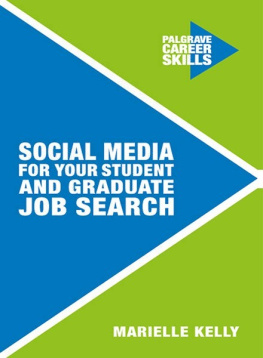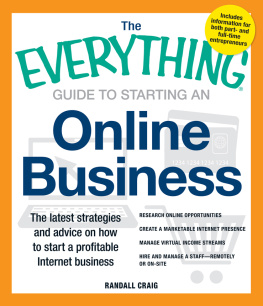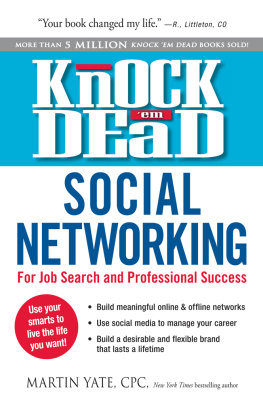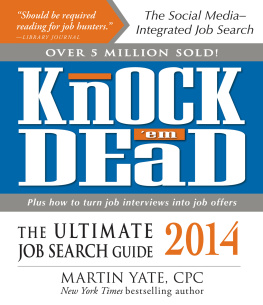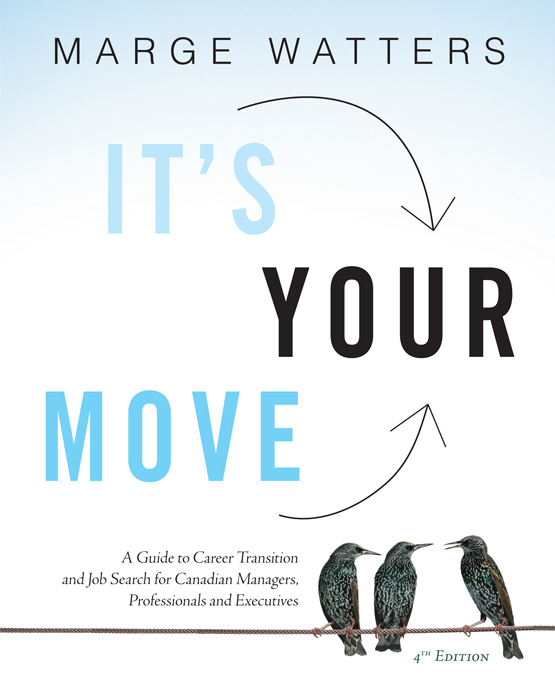Good career management skills are your ticket to continually having work that is challenging, rewarding and meaningful to you. Though an employer might assist you at times, the long-term responsibility for planning and directing your career is yours alone. From the time you first enter the workforce until you retire permanently, you need to be deliberate about moving from one opportunity to another, pursuing your interests, honouring your values, leveraging your knowledge and engaging the skills that you most enjoy using.
Finding the work you want can be a daunting challenge. Employment opportunities come and go with changing economic cycles, industry trends, technological innovations and demographic shifts. Every time youre planning a career move, its a new game. The rules have changed, the playing field has been rearranged and the players are unpredictable. In order to succeed, you must refresh yesterdays strategies and embrace todays reality. Those who play smart will learn a lot about themselves and the dynamic environment of the workplace.
Have a look at the complete picture by turning to the Process Map for a Targeted Employment Search on page 2. The content of this book follows the sequence outlined there. For every phase of the process you will find practical advice accompanied by exercises, guidelines, worksheets, samples, tips and stories from real-life experiences. Resist the temptation to jump into rsum writing and answering ads. The wise strategy is to take time for analysis and planning before charging ahead.
Its a whole new game. Playing well promises the rewards of flexibility, freedom and unlimited possibilities. But, unless you have the opportunity to work with a career consultant, its also a lonely game, one in which you are your own strategist, marketer, administrator, advocate and friend. Thats why I wrote this book. I hope that it will encourage and motivate you, show you where some of the hazards lie and give you the practical help you need to find the work you want.
Part One
Get Your Head in the Game
Winning relies as much on attitude as it does on hard work.
Objectives
Whether you have decided to move on, or the decision has been made for you, this first step involves ending your current employment situation with confidence and professionalism. By taking care of the details of transition and dealing with the emotions you experience, you can make a positive start. The chapters in Part One cover:
Evaluating your readiness to move on.
Handling the announcement of your departure effectively.
Reasons for seeking legal advice.
Financial planning for transition.
Building a support network.
Practical strategies for coping with your emotions.
Rules to Follow
Be committed to moving on. Fence-sitting is not good for you or your career.
Pay attention to your finances up front. Establish the maximum length of your transition period on the basis of your finances. Set a minimum remuneration requirement for your next opportunity.
Separate the emotional issues from the legal issues.
Choose your confidants wisely. Dont bare your soul to anyone and everyone.
Plan carefully what you will say about why you are making a change.
Moves That Can Set You Back
Being negative about any organization or person, thereby appearing unprofessional.
Sharing your plans for moving on with anyone inside your organization before you are ready to act on them.
Being dishonest with yourself about the feelings that change brings.
Ignoring the effects that a career change will have on the significant others in your life, including children of any age.
Jumping into the job market before taking the time to do a career assessment and create a strategy for finding the work you want.
Chapter 1
Start Here
Nothing is more important than your reputation with yourself.
Getting your head in the game requires that a decision be made about managing your career. If your employment is terminated, the decision is made for you. You probably wont be consulted, and the news can be quite a shock. The quick hit can be devastating at first, but there are advantages; for example, you dont have to suffer the turmoil of indecision or the disappointment of slow rejection by your organization. The decision is made, and youre at the starting line.
Working notice is a common practice, and it isnt always easy to handle. In this situation, your current responsibilities end, often as the result of project completion or restructuring, and you are given the opportunity to conduct an internal job search. Organizations vary in the degree of clarity they provide regarding their processes and the level of assurance they give regarding job availability. Some offer excellent internal support; others, none at all. If you are given working notice, get your head in the game right away and start managing your career.
Early retirement can be good news or bad news. Youre off to a great start if youve been waiting for the opportunity and you already have ideas about what you want to do next. However, if youll be in bad shape financially, or youre unprepared emotionally and psychologically for this news, the phrase early retirement can seem like a euphemism for being fired. Regardless of your initial reaction, there are benefits. You will be able to position your leaving as an early retirement, and having some pension income, you probably wont have to replace all your income to stay even.
If the decision to make a career change is entirely yours, being decisive and making time to do it right will be the challenge. Deciding to leave on your own can be the most difficult starting point. It isnt easy to be proactive about making a move when you are spending all your energy keeping up with the demands of your day-to-day responsibilities. Not devoting the time needed to pay attention to your future, however, is one of the greatest errors in good career management. Doing so requires commitment, organization and discipline. Dedicating yourself to this task is something that only you can do.
In any of these circumstances, you can take control and be determined to make the moves that are right for you. Too many people make mistakes with the closing steps of leaving a job because it is such an emotionally loaded decision, regardless of who makes it. Be very careful about what you say and do. How you handle your departure from a job will affect your reputation, your references and consequently your future.

